中華人民共和國工會法(2009修訂)(中英文對照版)
中華人民共和國工會法(2009),1992年4月3日第七屆全國人民代表大會第五次會議通過 1992年4月3日中華人民共和國主席令第五十七號公布 根據2001年10月27日第九屆全國人民代表大會常務委員會第二十四次會議《關於修改的決定》第一次修正 根據2009年8月27日第十一屆全國人民代表大會常務委員會第十次會議《關於修改部分法律的決定》第二次修正
法律文本
中華人民共和國工會法(2009修訂)
Trade Union Law of the People's Republic of China (Revised in 2009)
(1992年4月3日第七屆全國人民代表大會第五次會議通過 1992年4月3日中華人民共和國主席令第五十七號公布 根據2001年10月27日第九屆全國人民代表大會常務委員會第二十四次會議《關於修改<中華人民共和國工會法>的決定》第一次修正 根據2009年8月27日第十一屆全國人民代表大會常務委員會第十次會議《關於修改部分法律的決定》第二次修正)
(Adopted at the 5th session of the 7th National People 's Congress on April 3, 1992; promulgated by the Order of the President [1992] No.57 on April 3, 1992; amended for the first time according to the Decision on Amending the Labor Union Law of the People's Republic of China passed at the 24th session of the Standing Committee of the 9th National People's Congress on October 27, 2001; and amended for the second time according to the Decision on Amending Certain Laws passed at the 10th session of the Standing Committee of the 11th National People's Congress on August 27, 2009)
第一章 總則
Chapter 1 General Provisions
第一條 為保障工會在國家政治、經濟和社會生活中的地位,確定工會的權利與義務,發揮工會在社會主義現代化建設事業中的作用,根據憲法,制定本法。
Article 1 This Law is formulated in accordance with the Constitution in order to protect the position of trade unions in State political, economic and social life, to clarify the rights and obligations of trade unions and to enable them to play their proper role in the development of China's socialist modernization.
第二條 工會是職工自願結合的工人階級的群眾組織。
Article 2 Trade unions are mass organizations formed by the working classes of their own free will.
中華全國總工會及其各工會組織代表職工的利益,依法維護職工的合法權益。
The All-China Federation of Trade Unions and all of its trade union organisations shall represent the interests of employees and protect the legal rights and interests of employees in accordance with the law.
第三條 在中國境內的企業、事業單位、機關中以工資收入為主要生活來源的體力勞動者和腦力勞動者,不分民族、種族、性別、職業、宗教信仰、教育程度,都有依法參加和組織工會的權利。任何組織和個人不得阻撓和限制。
Article 3 All laborers doing physical or mental work in enterprises, public institutions and government organs within Chinese territory who earn their living primarily from wages shall have the right to participate in and form trade union organizations pursuant to the law, regardless of their nationalities, races, genders, occupations, religious beliefs or educations. No organization or individual may obstruct or restrict this right.
第四條 工會必須遵守和維護憲法,以憲法為根本的活動準則,以經濟建設為中心,堅持社會主義道路、堅持人民民主專政、堅持中國共產黨的領導、堅持馬克思列寧主義毛澤東思想鄧小平理論,堅持改革開放,依照工會章程獨立自主地開展工作。
Article 4 Trade unions must abide by and safeguard the Constitution, regarding the Constitution as the fundamental criteria for their activities, taking economic development as their central work, upholding the socialist road, the people's democratic dictatorship, the leadership of the Chinese Communist Party, Marxism, Leninism, Mao Zedong Thought and Deng Xiaoping Theory, and the policies of reform and opening up, and carrying out their work independently in accordance with their Articles of Association.
工會會員全國代表大會制定或者修改《中國工會章程》,章程不得與憲法和法律相抵觸。
The national trade union representatives' assembly shall formulate or amend the Constitution of the All-China Federation of Trade Unions, which shall be prohibited from conflicting in any way with China's Constitution and laws.
國家保護工會的合法權益不受侵犯。
The State shall protect the legal rights and interests of trade unions from infringement.
第五條 工會組織和教育職工依照憲法和法律的規定行使民主權利,發揮國家主人翁的作用,通過各種途徑和形式,參與管理國家事務、管理經濟和文化事業、管理社會事務;協助人民政府開展工作,維護工人階級領導的、以工農聯盟為基礎的人民民主專政的社會主義國家政權。
Article 5 Labor unions shall organize and educate employees to exercise their democratic rights in accordance with the provisions of the Constitution and laws, embody their role as masters of the country by participating through various channels and forms the management of national affairs, economic and cultural institutions and social affairs, assist the people's governments in their work, and uphold the people's socialist democratic dictatorship led by the working classes and based on the worker-peasant alliance.
第六條 維護職工合法權益是工會的基本職責。工會在維護全國人民總體利益的同時,代表和維護職工的合法權益。
Article 6 The basic duty of trade unions is to protect the legitimate rights and interests of employees. While upholding the overall rights and interests of the whole nation, trade unions shall, at the same time, represent and safeguard the rights and interests of workers.
工會通過平等協商和集體合同制度,協調勞動關系,維護企業職工勞動權益。
Trade unions shall coordinate labour relations and safeguard the labour rights and interests of enterprise employees through equal negotiation and the collective contract system.
工會依照法律規定通過職工代表大會或者其他形式,組織職工參與本單位的民主決策、民主管理和民主監督。
Trade unions shall, in accordance with the provisions of laws and through the employees' representative assembly or other forms, organize the employees to participate in the democratic decision-making, democratic management and democratic supervision of their respective units.
工會必須密切聯系職工,聽取和反映職工的意見和要求,關心職工的生活,幫助職工解決困難,全心全意為職工服務。
A trade union must liaise closely with workers, listen to and reflect their views and requirements, care for their livelihood, assist them in overcoming difficulties and serve them wholeheartedly.
第七條 工會動員和組織職工積極參加經濟建設,努力完成生產任務和工作任務。教育職工不斷提高思想道德、技術業務和科學文化素質,建設有理想、有道德、有文化、有紀律的職工隊伍。
Article 7 Labor unions shall mobilize and organize employees to actively participate in economic development, and to endeavor to complete their production and work assignments. To educate the staff and workers to continuously improve their ideological and ethical standards, technical and professional skills and scientific and cultural qualities.
第八條 中華全國總工會根據獨立、平等、互相尊重、互不幹涉內部事務的原則,加強同各國工會組織的友好合作關系。
Article 8 The All-China Federation of Trade Unions shall, in accordance with the principles of independence, equality, mutual respect and mutual non-interference in internal affairs, strengthen its friendly cooperative relations with labor union organizations in other countries.
第二章 工會組織
Chapter 2 Trade Union Organizations
第九條 工會各級組織按照民主集中制原則建立。
Article 9 Labor union organizations at all levels shall be established in accordance with the principle of democratic centralism.
各級工會委員會由會員大會或者會員代表大會民主選舉產生。企業主要負責人的近親屬不得作為本企業基層工會委員會成員的人選。
Trade union committees at the various levels shall be elected democratically by their general assemblies or representative assemblies. The close relatives of the major principals of an enterprise may not be elected as the members of the grassroots trade union committee of that enterprise.
各級工會委員會向同級會員大會或者會員代表大會負責並報告工作,接受其監督。
Trade union committees at the various levels shall be responsible to and shall submit work reports to general assemblies or representative assemblies at their respective levels and shall be subject to their supervision.
工會會員大會或者會員代表大會有權撤換或者罷免其所選舉的代表或者工會委員會組成人員。
Trade union general assemblies and representative assemblies shall have the right to change or dismiss their elected representatives or committee members.
上級工會組織領導下級工會組織。
Higher level trade union organisations shall lead lower level trade union organisations.
第十條 企業、事業單位、機關有會員二十五人以上的,應當建立基層工會委員會;不足二十五人的,可以單獨建立基層工會委員會,也可以由兩個以上單位的會員聯合建立基層工會委員會,也可以選舉組織員一人,組織會員開展活動。女職工人數較多的,可以建立工會女職工委員會,在同級工會領導下開展工作;女職工人數較少的,可以在工會委員會中設女職工委員。
Article 10 The trade union of an enterprise, public institution or government organ with 25 or more members shall establish a basic-level trade union committee; if the members are less than 25, a basic-level trade union committee may be established separately, or a basic-level trade union committee be established by the members of two units or more, or an organizer may be elected to organize activities for the members. If the number of female employees is relatively large, a trade union committee for female employees may be established under the leadership of the trade union at the same level. If the number of female employees is relatively small, female employee members may be included in the trade union committee.
企業職工較多的鄉鎮、城市街道,可以建立基層工會的聯合會。
Townships and urban sub-districts with a relatively large number of enterprise employees may establish grassroots trade union associations.
縣級以上地方建立地方各級總工會。
A locality at county level or above shall establish a local all-level federation of trade unions.
同一行業或者性質相近的幾個行業,可以根據需要建立全國的或者地方的產業工會。
Several enterprises operating in the same industry or in industries of a similar nature may establish a national or local specific industry trade union, depending on their requirements.
全國建立統一的中華全國總工會。
A unified All-China Federation of Trade Unions shall be established.
第十一條 基層工會、地方各級總工會、全國或者地方產業工會組織的建立,必須報上一級工會批準。
Article 11 The establishment of any grassroots labor union, local all-level federation of labor unions or national or local industry-specific labor union must be reported to the immediately superior labor union organization for approval.
上級工會可以派員幫助和指導企業職工組建工會,任何單位和個人不得阻撓。
Higher level trade unions can send out personnel to assist and direct enterprise employees to establish a trade union. No organisation or individual shall obstruct this work.
第十二條 任何組織和個人不得隨意撤銷、合並工會組織。
Article 12 No organisation or individual shall arbitrarily abolish or merge labour union organisations.
基層工會所在的企業終止或者所在的事業單位、機關被撤銷,該工會組織相應撤銷,並報告上一級工會。
If a basic-level trade union organization's enterprise terminates its operations or its public institution or administrative organ is dissolved, the said trade union organization shall also be dissolved and the case shall be reported to the trade union at the next higher level.
依前款規定被撤銷的工會,其會員的會籍可以繼續保留,具體管理辦法由中華全國總工會制定。
For the trade union cancelled according to the provisions of the preceding paragraph, the membership of its members may be reserved, and the specific management measures shall be formulated by the All-China Federation of Trade Unions.
第十三條 職工二百人以上的企業、事業單位的工會,可以設專職工會主席。工會專職工作人員的人數由工會與企業、事業單位協商確定。
Article 13 The trade union of an enterprise or public institution with 200 or more workers may establish full-time trade union chairman. The number of labor union full-time staff shall be determined by mutual agreement between the labor union and the enterprise or governmental institution concerned.
第十四條 中華全國總工會、地方總工會、產業工會具有社會團體法人資格。
Article 14 The All-China Federation of Trade Unions, local all-level federations of trade unions and specific industry trade unions shall have the legal person status of a social group.
基層工會組織具備民法通則規定的法人條件的,依法取得社會團體法人資格。
A grassroots labour union organisation which satisfies the legal person criteria stipulated in the General Principles of Civil Law shall obtain social organisation legal person status pursuant to the law.
第十五條 基層工會委員會每屆任期三年或者五年。各級地方總工會委員會和產業工會委員會每屆任期五年。
Article 15 The term of a primary trade union committee is 3 or 5 years. The terms of office of the committees of the local all-level federations of trade unions and of the specific industry trade unions shall be five years each.
第十六條 基層工會委員會定期召開會員大會或者會員代表大會,討論決定工會工作的重大問題。經基層工會委員會或者三分之一以上的工會會員提議,可以臨時召開會員大會或者會員代表大會。
Article 16 Grassroots labor union committees shall periodically convene meetings of their members' assemblies or members' representative congresses to discuss major issues arising from their labor union activities. The general assembly or representative assembly may be held temporarily upon the proposal of the grassroots trade union committee or more than one third of the trade union members.
第十七條 工會主席、副主席任期未滿時,不得隨意調動其工作。因工作需要調動時,應當征得本級工會委員會和上一級工會的同意。
Article 17 During their terms of office, a trade union chairman and deputy chairman shall not be arbitrarily transferred to other positions. If work requirements necessitate such a move, approval shall be obtained from the respective level trade union committee and higher level trade union.
罷免工會主席、副主席必須召開會員大會或者會員代表大會討論,非經會員大會全體會員或者會員代表大會全體代表過半數通過,不得罷免。
General assembly or representative assembly must be held to discuss the dismissal of the trade union chairman or deputy chairman, and the chairman or deputy chairman may not be dismissed unless all members of the general assembly or half the representatives of the representative assembly approve the dismissal.
第十八條 基層工會專職主席、副主席或者委員自任職之日起,其勞動合同期限自動延長,延長期限相當於其任職期間;非專職主席、副主席或者委員自任職之日起,其尚未履行的勞動合同期限短於任期的,勞動合同期限自動延長至任期期滿。但是,任職期間個人嚴重過失或者達到法定退休年齡的除外。
Article 18 With effect from the date of appointment of the full-time chairman, deputy chairman or committee member of a grassroots labour union, the labour contract shall be automatically extended and the extension of appointment shall be equivalent to the period of appointment of such full-time chairman, deputy chairman or committee member. Where the unperformed labour contract of a non-full-time chairman, deputy chairman or committee member is shorter than the period of appointment, the labour contract shall be automatically extended up to the expiry of the period of appointment. However, those committing serious negligence or reaching the statutory age for retirement are exceptional.
第三章 工會的權利和義務
Chapter III Rights and Obligations of Trade Unions
第十九條 企業、事業單位違反職工代表大會制度和其他民主管理制度,工會有權要求糾正,保障職工依法行使民主管理的權利。
Article 19 If an enterprise or public institution violates the provisions of the employee representative congress system or any other democratic management system, the trade union of the said unit shall have the right to request corrections and ensure that the employees exercise their rights to democratic management pursuant to the law.
法律、法規規定應當提交職工大會或者職工代表大會審議、通過、決定的事項,企業、事業單位應當依法辦理。
The enterprise or public institution shall handle pursuant to law the matters that shall be submitted to the employee assembly or employee representative congress for discussion, approval and decision as provided by laws and regulations.
第二十條 工會幫助、指導職工與企業以及實行企業化管理的事業單位簽訂勞動合同。
Article 20 A trade union shall assist and provide guidance to workers signing labour contracts with an enterprise or public institution managed as an enterprise.
工會代表職工與企業以及實行企業化管理的事業單位進行平等協商,簽訂集體合同。集體合同草案應當提交職工代表大會或者全體職工討論通過。
Labor unions shall represent employees in equal negotiations and signing collective contracts with enterprises and institutional organisations that are implementing enterprise style management. A draft collective contract shall be submitted to the employee representatives congress or all employees for discussion and adoption.
工會簽訂集體合同,上級工會應當給予支持和幫助。
The trade union at the next higher level shall support and assist the trade union in signing the collective contract.
企業違反集體合同,侵犯職工勞動權益的,工會可以依法要求企業承擔責任;因履行集體合同發生爭議,經協商解決不成的,工會可以向勞動爭議仲裁機構提請仲裁,仲裁機構不予受理或者對仲裁裁決不服的,可以向人民法院提起訴訟。
Where an enterprise breaches a collective contract and infringes on the labor rights and interests of its employees, the labor union may, in accordance with the law, demand that the enterprise assume liability; where a dispute arises from the performance of the collective contract and no settlement is reached through consultation, the labor union may submit the dispute to a labor dispute arbitration organization for arbitration, and if the arbitration organization refuses to accept the case or the parties are dissatisfied with the arbitral award, they may institute legal proceedings in a people's court.
第二十一條 企業、事業單位處分職工,工會認為不適當的,有權提出意見。
Article 21 A trade union which believes that an enterprise's or a public institution's punishment on an employee is inappropriate shall have the right to put forward its views on the matter.
企業單方面解除職工勞動合同時,應當事先將理由通知工會,工會認為企業違反法律、法規和有關合同,要求重新研究處理時,企業應當研究工會的意見,並將處理結果書面通知工會。
When unilaterally canceling the labor contract with an employee, the enterprise shall notify the trade union of the reasons in advance, if the trade union regards that the enterprise has violated the laws, regulations and the relevant contracts and requests that the case be reinvestigated and handled, the enterprise shall study the trade union's opinions and notify the trade union of the handling result in written form.
職工認為企業侵犯其勞動權益而申請勞動爭議仲裁或者向人民法院提起訴訟的,工會應當給予支持和幫助。
Where an employee believes that his rights and interests have been infringed by the enterprise and applies for the arbitration of a labor dispute or files proceedings in a people's court, the labor union shall provide support and assistance.
第二十二條 企業、事業單位違反勞動法律、法規規定,有下列侵犯職工勞動權益情形,工會應當代表職工與企業、事業單位交涉,要求企業、事業單位采取措施予以改正;企業、事業單位應當予以研究處理,並向工會作出答複;企業、事業單位拒不改正的,工會可以請求當地人民政府依法作出處理:
Article 22 Where, in any of the following circumstances, an enterprise or public institution infringes the labor rights and interests of any of its employees in violation of any labor law or regulation, the labor union shall negotiate with the enterprise or public institution on behalf of the employee (s) and demand that it implement remedial measures, and the enterprise or public institution shall reconsider the case and respond to the labor union. Where the enterprise or public institution fails to rectify the matter, the labor union may request that the local people's government handle the case in accordance with the law:
(一)克扣職工工資的;
1. Where the enterprise or governmental institution withholds or reduces an employee's wages;
(二)不提供勞動安全衛生條件的;
(II) failing to provide labor safety and health conditions;
(三)隨意延長勞動時間的;
(III) extending the working hours arbitrarily;
(四)侵犯女職工和未成年工特殊權益的;
(IV) infringing upon the special rights and interests of female employees and minors; and
(五)其他嚴重侵犯職工勞動權益的。
(V) Seriously infringing upon the labor rights and interests of the employees.
第二十三條 工會依照國家規定對新建、擴建企業和技術改造工程中的勞動條件和安全衛生設施與主體工程同時設計、同時施工、同時投產使用進行監督。對工會提出的意見,企業或者主管部門應當認真處理,並將處理結果書面通知工會。
Article 23 A trade union shall, pursuant to state regulations, supervise the concurrent design, concurrent construction, and concurrent use of the working conditions and safety and hygiene facilities with the main part of the project of a newly constructed or expanded enterprise or of an undergoing technological transformation. The enterprise or the authorities in charge shall deal with the opinion of the labour union seriously, and notify the labour union of the handling outcome in writing.
第二十四條 工會發現企業違章指揮、強令工人冒險作業,或者生產過程中發現明顯重大事故隱患和職業危害,有權提出解決的建議,企業應當及時研究答複;發現危及職工生命安全的情況時,工會有權向企業建議組織職工撤離危險現場,企業必須及時作出處理決定。
Article 24 If a trade union discovers that an enterprise is breaking rules and regulations by directing or forcing workers to take risks or if distinct and significant hidden dangers or occupational hazards are discovered during the production process, the trade union shall have the right to suggest a resolution, and the enterprise shall study the problem and make a reply promptly; on discovering a situation where the personal safety of workers is jeopardized, a trade union shall have the right to suggest to the enterprise that the workers abandon the dangerous site and the said enterprise must decide promptly on the measures to resolve the matter.
第二十五條 工會有權對企業、事業單位侵犯職工合法權益的問題進行調查,有關單位應當予以協助。
Article 25 A labor union has the right to investigate any alleged infringement of the legitimate rights and interests of employees by an enterprise or public institution; the relevant work unit shall assist with any such investigation.
第二十六條 職工因工傷亡事故和其他嚴重危害職工健康問題的調查處理,必須有工會參加。工會應當向有關部門提出處理意見,並有權要求追究直接負責的主管人員和有關責任人員的責任。對工會提出的意見,應當及時研究,給予答複。
Article 26 Any investigation into a work-related accident resulting in the death, or injury of an employee, or any other problem seriously endangering the health of employees, must be participated in by the labor union. The labour union shall propose handling opinions to the relevant authorities, and shall have the right to request that the liability of the directly accountable person-in-charge and the relevant accountable personnel be pursued. The opinions given by the trade union shall be studied and replied promptly.
第二十七條 企業、事業單位發生停工、怠工事件,工會應當代表職工同企業、事業單位或者有關方面協商,反映職工的意見和要求並提出解決意見。對於職工的合理要求,企業、事業單位應當予以解決。工會協助企業、事業單位做好工作,盡快恢複生產、工作秩序。
Article 27 If an enterprise or public institution is subject to stop work or slow down measures, the trade union shall represent the employees to negotiate with the enterprise, public institution or other relevant authorities, make known the employees' views and requirements and propose a resolution. The enterprise or public institution shall meet the reasonable requirements raised by the employees. Trade unions shall assist the enterprises and public institutions in their work so as to facilitate the restoration of production and work order.
第二十八條 工會參加企業的勞動爭議調解工作。
Article 28 A trade union shall participate in mediation work conducted in relation to labour disputes within its enterprise.
地方勞動爭議仲裁組織應當有同級工會代表參加。
Local level labour dispute arbitration organisations should include representatives from unions of the same level.
第二十九條 縣級以上各級總工會可以為所屬工會和職工提供法律服務。
Article 29 Trade union federations at county level or above may provide their affiliated trade unions and employees with legal services.
第三十條 工會協助企業、事業單位、機關辦好職工集體福利事業,做好工資、勞動安全衛生和社會保險工作。
Article 30 Trade unions shall assist the enterprises, public institutions and government organs in organizing employee collective welfare matters and wage, employee health and safety and social insurance work.
第三十一條 工會會同企業、事業單位教育職工以國家主人翁態度對待勞動,愛護國家和企業的財產,組織職工開展群眾性的合理化建議、技術革新活動,進行業餘文化技術學習和職工培訓,組織職工開展文娛、體育活動。
Article 31 Labor unions shall educate employees to do their work and care for the property of the State and enterprises from a standpoint of the nation's master, organize employees to carry out mass campaigns involving rationalization proposals and technological renovation and to undertake after-hours cultural and technical studies and training, and shall organize employees to hold cultural, recreational and sports activities.
第三十二條 根據政府委托,工會與有關部門共同做好勞動模範和先進生產(工作)者的評選、表彰、培養和管理工作。
Article 32 In accordance with government instructions, a labor union shall, jointly with other relevant departments, perform the tasks of selecting, commending, developing and managing model workers and advanced producers (workers).
第三十三條 國家機關在組織起草或者修改直接涉及職工切身利益的法律、法規、規章時,應當聽取工會意見。
Article 33 State authorities shall listen to the opinions of labor unions when drafting or amending laws, regulations and rules that directly affect the immediate interests of employees.
縣級以上各級人民政府制定國民經濟和社會發展計劃,對涉及職工利益的重大問題,應當聽取同級工會的意見。
The people's governments at the county level or above shall, when formulating the national economic and social development plans, listen to the opinions of the trade unions at the same level on the important issues involving the interests of the employees.
縣級以上各級人民政府及其有關部門研究制定勞動就業、工資、勞動安全衛生、社會保險等涉及職工切身利益的政策、措施時,應當吸收同級工會參加研究,聽取工會意見。
When the various levels of people's governments at county level or above and their relevant departments formulate policies or measures on employment, wages, work safety and hygiene, social security, and other policies or measures relating to the immediate interests of employees, equivalent level trade unions shall be recruited to participate in the research work and the views of the said trade unions shall be heeded.
第三十四條 縣級以上地方各級人民政府可以召開會議或者采取適當方式,向同級工會通報政府的重要的工作部署和與工會工作有關的行政措施,研究解決工會反映的職工群眾的意見和要求。
Article 34 Local people's governments at or above the county level may, through meetings or other appropriate means, inform labor unions at the same level of their respective major work plans and administrative measures relating to labor union activities, and shall consider and determine how to handle the opinions and demands of employees as reflected by labor unions.
各級人民政府勞動行政部門應當會同同級工會和企業方面代表,建立勞動關系三方協商機制,共同研究解決勞動關系方面的重大問題。
The labour administration authorities of all levels of People's Governments shall, jointly with the counterpart labour union and the enterprise representatives, establish a tripartite labour relationship consultation mechanism, and jointly study and resolve significant labour relationship issues.
第四章 基層工會組織
Chapter 4 Basic-level Trade Union Organizations
第三十五條 國有企業職工代表大會是企業實行民主管理的基本形式,是職工行使民主管理權力的機構,依照法律規定行使職權。
Article 35 In a state-owned enterprise, the employees' representative congress shall be the basic form through which the enterprise may implement democratic management policy and shall be the body through which employees exercise their democratic management rights in accordance with the provisions of the laws.
國有企業的工會委員會是職工代表大會的工作機構,負責職工代表大會的日常工作,檢查、督促職工代表大會決議的執行。
The trade union committee of a state-owned enterprise shall be the working body of the employees' representative assembly and shall be responsible for the daily affairs of the employees' representative assembly and for inspecting and supervising the implementation of resolutions of the employees' representative assembly.
第三十六條 集體企業的工會委員會,應當支持和組織職工參加民主管理和民主監督,維護職工選舉和罷免管理人員、決定經營管理的重大問題的權力。
Article 36 The labor union committee of a collective enterprise shall support and organize employees to participate in democratic management and supervision activities, and shall safeguard the rights of employees to elect and dismiss administrative personnel and decide on major issues concerning the operation and management of the enterprise.
第三十七條 本法第三十五條、第三十六條規定以外的其他企業、事業單位的工會委員會,依照法律規定組織職工采取與企業、事業單位相適應的形式,參與企業、事業單位民主管理。
Article 37 The labor union committee of any enterprise or institution other than those described in Articles 35 and 36 hereof shall organize employees to participate in the democratic management of the enterprise or institution by means appropriate to the enterprise or institution concerned in accordance with the provisions of the laws.
第三十八條 企業、事業單位研究經營管理和發展的重大問題應當聽取工會的意見;召開討論有關工資、福利、勞動安全衛生、社會保險等涉及職工切身利益的會議,必須有工會代表參加。
Article 38 Enterprises and institutions shall listen to the opinions of labor unions when studying important issues regarding their operations, management and development, and meetings concerning wages, welfare benefits, employee health and safety, social security and any other matter relating to the immediate interests of employees must be participated in by labor union representatives.
企業、事業單位應當支持工會依法開展工作,工會應當支持企業、事業單位依法行使經營管理權。
Enterprises and public institutions shall support labor unions to pursue their activities in accordance with the law, and labor unions shall support enterprises and institutions in their exercise of operating and management powers.
第三十九條 公司的董事會、監事會中職工代表的產生,依照公司法有關規定執行。
Article 39 Employee representatives on the board of directors or board of supervisors of any company shall be elected in accordance with the provisions of the Company Law.
第四十條 基層工會委員會召開會議或者組織職工活動,應當在生產或者工作時間以外進行,需要占用生產或者工作時間的,應當事先征得企業、事業單位的同意。
Article 40 A primary trade union committee convening a meeting or organizing activities for workers shall do so in time outside production or work hours. If it is necessary to occupy production or work hours, prior approval of the enterprise or public institution shall be required.
基層工會的非專職委員占用生產或者工作時間參加會議或者從事工會工作,每月不超過三個工作日,其工資照發,其他待遇不受影響。
Where a non-full-time member of a grassroots trade union committee uses production or work hours to attend meetings or undertake trade union work for not more than three working days per month, the said member's wages shall be paid as usual and other benefits shall not be affected.
第四十一條 企業、事業單位、機關工會委員會的專職工作人員的工資、獎勵、補貼,由所在單位支付。社會保險和其他福利待遇等,享受本單位職工同等待遇。
Article 41 The wages, bonuses and subsidies of full-time staff members of the labor union committee of any enterprise, institution or authorities shall be paid by their respective work units. With regard to social insurance and other welfare benefits, the same treatment shall apply as received by the said unit's workers.
第五章 工會的經費和財產
Chapter 5 Labor Union Operating Funds and Assets
第四十二條 工會經費的來源:
Article 42 The sources of trade union funds shall be as follows:
(一)工會會員繳納的會費;
1. Membership dues paid by union members;
(二)建立工會組織的企業、事業單位、機關按每月全部職工工資總額的百分之二向工會撥繳的經費;
2. monthly allocations of 2% of the total wages of all of its employees paid to a trade union as funds by the enterprise, public institution or government organ which established the said trade union organization; and
(三)工會所屬的企業、事業單位上繳的收入;
(III) Income paid by enterprises and public institutions subordinated to the trade union;
(四)人民政府的補助;
(IV) people's government subsidies; and
(五)其他收入。
(V) Other incomes.
前款第二項規定的企業、事業單位撥繳的經費在稅前列支。
Funds allocated by an enterprise or institution as stipulated in item (2) of the preceding paragraph shall be charged on a pre-tax basis.
工會經費主要用於為職工服務和工會活動。經費使用的具體辦法由中華全國總工會制定。
Labor union operating funds shall be used primarily to serve employees and for labor union activities. Specific measures for the use of such funds shall be formulated by the All-China Federation of Trade Unions.
第四十三條 企業、事業單位無正當理由拖延或者拒不撥繳工會經費,基層工會或者上級工會可以向當地人民法院申請支付令;拒不執行支付令的,工會可以依法申請人民法院強制執行。
Article 43 Where an enterprise or governmental institution delays or withholds the payment of labor union operating funds without any valid reason, the grassroots labor union or its immediate superior labor union may apply with a local people's court for a payment order. Where the enterprise or governmental institution fails to comply with any such payment order, the labor union may apply to the people's court to have the order enforced in accordance with the law.
第四十四條 工會應當根據經費獨立原則,建立預算、決算和經費審查監督制度。
Article 44 A trade union shall work out its own budget and final accounts, as well as its own fund inspection and supervisory systems in accordance with the principle of independent accounting.
各級工會建立經費審查委員會。
All levels of labour unions shall establish fund audit committees.
各級工會經費收支情況應當由同級工會經費審查委員會審查,並且定期向會員大會或者會員代表大會報告,接受監督。工會會員大會或者會員代表大會有權對經費使用情況提出意見。
The fund income and expenditure situation of trade unions at the various levels shall be investigated by equivalent level fund inspection committees and periodic reports shall be made to the members' general assemblies or representative assemblies and be subject to supervision. A trade union general assembly or representative assembly shall have the right to put forward suggestions on the use of trade union funds.
工會經費的使用應當依法接受國家的監督。
The use of trade union funds shall be subject to the supervision of the State in accordance with the law.
第四十五條 各級人民政府和企業、事業單位、機關應當為工會辦公和開展活動,提供必要的設施和活動場所等物質條件。
Article 45 People's governments at the various levels and enterprises, public institutions and government organs shall provide the necessary facilities, venues and other material requirements of trade union organizations handling office matters and arranging union activities.
第四十六條 工會的財產、經費和國家撥給工會使用的不動產,任何組織和個人不得侵占、挪用和任意調撥。
Article 46 No organization or individual may occupy, misappropriate or arbitrarily allocate a trade union's assets, funds or immovable property allocated by the State for use by the trade union.
第四十七條 工會所屬的為職工服務的企業、事業單位,其隸屬關系不得隨意改變。
Article 47 The jurisdictional framework of those enterprises and public institutions servicing workers which are subordinate to trade unions shall not be altered arbitrarily.
第四十八條 縣級以上各級工會的離休、退休人員的待遇,與國家機關工作人員同等對待。
Article 48 Persons retiring from positions with trade unions at the county level or above shall receive the same benefits as persons working for State organs.
第六章 法律責任
Chapter 6 Legal Liabilities
第四十九條 工會對違反本法規定侵犯其合法權益的,有權提請人民政府或者有關部門予以處理,或者向人民法院提起訴訟。
Article 49 A trade union shall have the right to submit the infringement upon its legal rights and interests violating the provisions of this Law to the people's government or the departments concerned for handling, or to bring a lawsuit before the people's court.
第五十條 違反本法第三條、第十一條規定,阻撓職工依法參加和組織工會或者阻撓上級工會幫助、指導職工籌建工會的,由勞動行政部門責令其改正;拒不改正的,由勞動行政部門提請縣級以上人民政府處理;以暴力、威脅等手段阻撓造成嚴重後果,構成犯罪的,依法追究刑事責任。
Article 50 Any party that, in violation of Article 3 or 11 of this Law, obstructs an employee from lawfully participating in or organizing a labor union, or obstructs a labor union at a higher level from assisting or guiding employees to establish a labor union, shall be ordered to take remedial action by the administrative department of labor. Where the party responsible fails to take remedial action, the administrative department of labor shall submit the case to the appropriate people's government at or above the county level to be dealt with. Where the obstruction is in the form of violence, threats, etc., resulting in serious consequences, and constitutes a criminal offence, criminal liability shall be pursued in accordance with the law.
第五十一條 違反本法規定,對依法履行職責的工會工作人員無正當理由調動工作崗位,進行打擊報複的,由勞動行政部門責令改正、恢複原工作;造成損失的,給予賠償。
Article 51 Any party that, in violation of the provisions of this Law, inappropriately transfers a labor union staff member who performs his duties in accordance with the law away from his present position without any valid reason, shall be ordered by the administrative department of labor to take remedial action and restore the staff member to his original position. Where such action results in any loss, compensation shall be paid.
對依法履行職責的工會工作人員進行侮辱、誹謗或者進行人身傷害,構成犯罪的,依法追究刑事責任;尚未構成犯罪的,由公安機關依照治安管理處罰法的規定處罰。
Where any party insults, defames or inflicts personal injury on a labor union staff member who performs his duties in accordance with the law, and such action constitutes a criminal offence, criminal liability shall be pursued. Where the conduct in question does not constitute a criminal offence, the party responsible shall be punished by the public security authorities in accordance with the Law on Penalties for the Violation of Public Security Administration.
第五十二條 違反本法規定,有下列情形之一的,由勞動行政部門責令恢複其工作,並補發被解除勞動合同期間應得的報酬,或者責令給予本人年收入二倍的賠償:
Article 52 Where any provision of this Law is violated and under any of the following circumstances, the administrative department of labor shall issue an order that the relevant individual's employment be restored and the remuneration he was due to receive during the period of time for which his labour contract was terminated shall be compensated, or the compensation equivalent to twice his annual income shall be ordered to be paid:
(一)職工因參加工會活動而被解除勞動合同的;
1. Where an employee's labor contract is cancelled due to his/her participation in trade union activities; or
(二)工會工作人員因履行本法規定的職責而被解除勞動合同的。
(II) Where a labor union staff member's employment contract is terminated due to his performance of the duties stipulated herein.
第五十三條 違反本法規定,有下列情形之一的,由縣級以上人民政府責令改正,依法處理:
Article 53 Where any provision of this Law is violated and under any of the following circumstances, the appropriate people's government at or above the county level shall order that remedial action be taken and shall the matter be handled in accordance with the law:
(一)妨礙工會組織職工通過職工代表大會和其他形式依法行使民主權利的;
1. hindering the trade unions from organizing employees to exercise their democratic rights through the employees' representative assembly or other forms;
(二)非法撤銷、合並工會組織的;
2. Illegally canceling or merging trade union organizations;
(三)妨礙工會參加職工因工傷亡事故以及其他侵犯職工合法權益問題的調查處理的;
(III) Where a labor union is obstructed from participating in the investigation and handling of any work-related accident resulting in the death or injury of an employee or of any other infringement of the legitimate rights and interests of employees; or
(四)無正當理由拒絕進行平等協商的。
(IV) refusing to conduct equal negotiation without justified reasons.
第五十四條 違反本法第四十六條規定,侵占工會經費和財產拒不返還的,工會可以向人民法院提起訴訟,要求返還,並賠償損失。
Article 54 Where any party, in violation of Article 46 hereof, misuses labor union operating funds or other property and fails to return the same, the labor union may institute proceedings in a people's court to demand the return of the property in question and claim compensation for any loss suffered.
第五十五條 工會工作人員違反本法規定,損害職工或者工會權益的,由同級工會或者上級工會責令改正,或者予以處分;情節嚴重的,依照《中國工會章程》予以罷免;造成損失的,應當承擔賠償責任;構成犯罪的,依法追究刑事責任。
Article 55 Any labor union staff member who, in violation of the provisions of this Law, damages the rights and interests of employees or the labor union, shall either be ordered to take remedial action by a labor union at the same level or by its immediate superior labor union, or be penalized. Where the circumstances are serious, his union membership shall be revoked in accordance with the Constitution of the All-China Federation of Trade Unions. Where any loss is caused, he shall be liable to pay compensation, and where the case constitutes a criminal offence, criminal liability shall be pursued in accordance with the law.
第七章 附則
Chapter 7 Supplementary Provisions
第五十六條 中華全國總工會會同有關國家機關制定機關工會實施本法的具體辦法。
Article 56 The All-China Federation of Trade Unions shall, in conjunction with the relevant government authorities, formulate specific measures for the implementation of this Law by labor unions of government authorities.
第五十七條 本法自公布之日起施行。1950年6月29日中央人民政府頒布的《中華人民共和國工會法》同時廢止。
Article 57 This Law shall go into effect as of the date of promulgation. The Trade Union Law of the People's Republic of China, issued 29 June 1950 by the Central People's Government, shall be annulled simultaneously.
©本站文章、圖片等內容知識產權歸作者所有。本站所有內容均來源於網絡,僅供學習交流使用!
轉載請注明出處: 法總荟 » 中華人民共和國工會法(2009修訂)(中英文對照版)
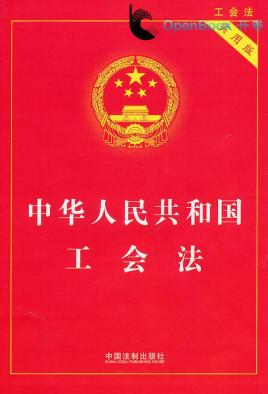
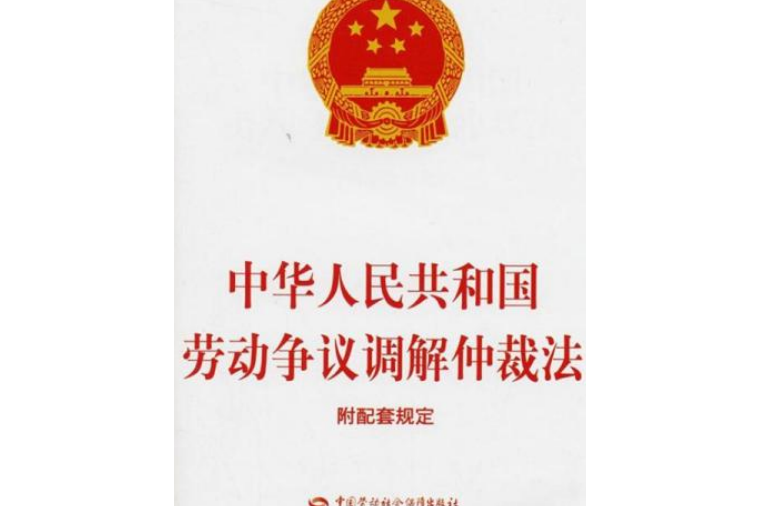
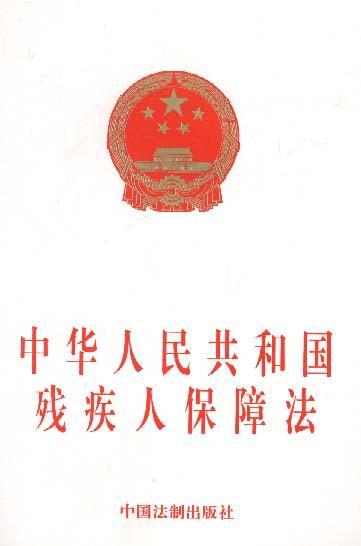
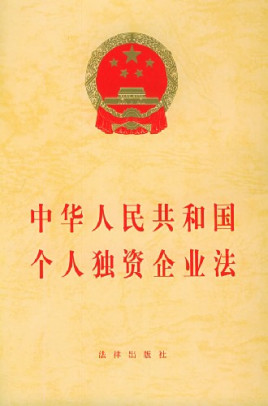
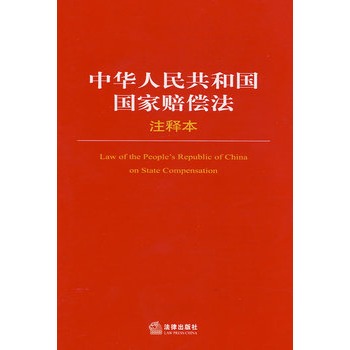
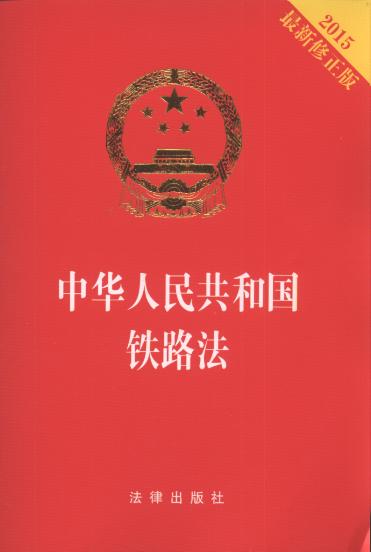
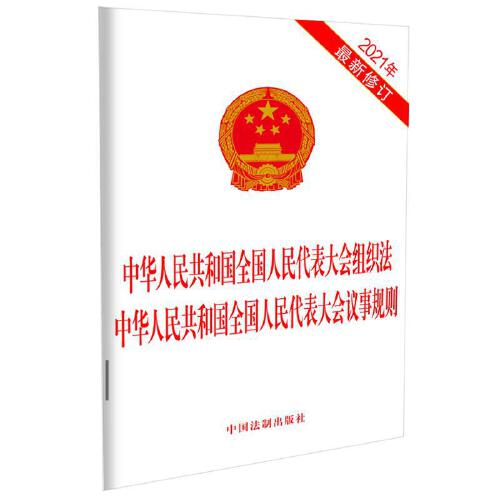


發表評論 取消回複